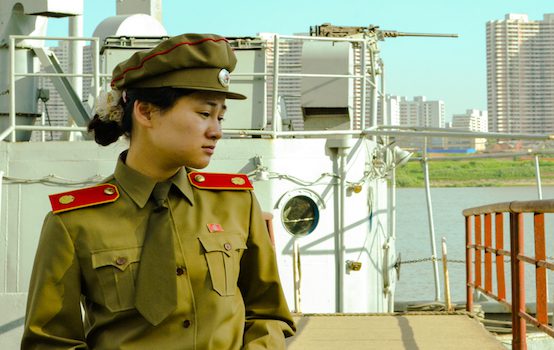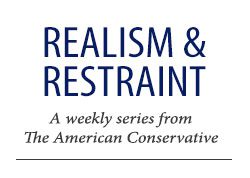Trashing the Conventional Wisdom on North Korea

Nuclear weapons have become the great international equalizer. During the Cold War, the U.S. and Soviet Union couldn’t afford to risk a conventional war. If one side started losing, the temptation to escalate would be enormous. The results would be ruinous even for the nominal winner.
Since then, China probably has edged into the deterrence club, even though its nuclear arsenal is far inferior to that of America. And maybe India. No one expects New Delhi to attack the U.S., but some Indians noted its value as a means to deter any attempt by Washington at coercion.
 Now North Korea is knocking on the club door. Pyongyang is a good example of the aphorism that even paranoids have enemies. The Democratic People’s Republic of Korea has fallen dramatically behind the South, which enjoys roughly 40 times the economic strength and twice the population, plus a host of other advantages. Add in Seoul’s ally, the U.S., and the DPRK has no chance in any conventional conflict.
Now North Korea is knocking on the club door. Pyongyang is a good example of the aphorism that even paranoids have enemies. The Democratic People’s Republic of Korea has fallen dramatically behind the South, which enjoys roughly 40 times the economic strength and twice the population, plus a host of other advantages. Add in Seoul’s ally, the U.S., and the DPRK has no chance in any conventional conflict.
It’s hard to judge how much Pyongyang fears attack, but South Korean presidents from Syngman Rhee to Chun Doo-hwan talked about targeting the North (the former to reunite the peninsula, the latter to retaliate for the Rangoon bombing). Lee Myung-bak indicated his readiness to strike back in 2010 after North Korea sank a South Korean naval vessel and bombarded an island. Moreover, the U.S. defended the Republic of Korea in 1950, considered use of nuclear weapons in that conflict, initiated a security treaty afterwards, stationed ample forces on the peninsula and nearby, and in recent years ousted the leaders of Afghanistan, Iraq, and Libya, and dismantled Serbia.
The president responsible for the first two of those wars termed the DPRK a member of “the axis of evil” and said he “loathed” its leader, Kim Jong-il. In Libya, Washington took out the dictator after he gave up his nuclear weapons and missiles. Now President Donald Trump has talked about sending an “armada” off of the North’s coast and drenching North Korea in “fire and fury.” He surely has offered Pyongyang retrospective justification for developing a nuclear deterrent. Who would want to face the current administration without one?
Acquiring both nukes and ICBMs is a game-changer, but not because Supreme Leader Kim Jong-un plans a surprise attack on America. He is evil, not suicidal. All indications are that he wants his virgins in this world, not the next. Rather, he wants to deter U.S. military involvement and attack. If Washington wasn’t bothering him, he wouldn’t likely want long-range missiles, which would inevitably attract America’s attention. But since he’s in the U.S. military’s gunsights, he needs the ability to strike back. With that, Washington will have to rethink whether it is willing to intervene even in another conventional conflict. If the DPRK again was on the brink of defeat, as in 1950, but without hope of Chinese or Russian rescue, then Kim would have little reason not to use his nuclear weapons. How many Americans want to risk Los Angeles and Seattle in order to defend Seoul and Pusan?
Current attempts to eliminate the North’s nuclear program seem doomed to failure. The North has repeatedly said it won’t voluntarily yield its nuclear program. When I visited Pyongyang in June, officials blamed Washington’s “hostile policy” and promised to match America nuke for nuke.
Ever tighter sanctions would hurt the DPRK, but the regime survived at least a half million starvation deaths in the late 1990s. And without full Chinese support, unlikely as long as Washington doesn’t demand that Beijing hand over its sole East Asian ally, the impact of unilateral penalties will be limited. Secondary sanctions would wound Chinese banks and firms, but such an approach would more likely engender resistance than acquiescence from Beijing.
Military action would risk triggering the Second Korean War. The Kim regime is likely to take any attack as a prelude to regime change. Reportedly the lesson learned by the Korean People’s Army from recent U.S. military operations is not to cede the initiative to America. While the U.S. (and Republic of Korea) forces would prevail in any war, the cost could be horrific, especially to South Koreans, whose land would be the primary battlefield, at least initially.
So Washington needs to take a different direction. Business as usual won’t work. What to do?
Drop the “Mutual” Defense Treaty and withdraw U.S. forces from South Korea. The alliance is outmoded. The ROK could construct whatever armed forces are necessary to deter the North and defeat it in any war. No doubt, South Koreans prefer to be defended by the global superpower. But protecting other states should be a matter of security, not charity.
That was the case when the threat was “only” a conventional fight, likely to be ferocious and costly. The prospect of a war going nuclear raises the question: does the U.S. really want to risk a nuclear attack on the homeland to continue protecting a nation well able to take over responsibility for its own defense? Washington officials should put the interests of Americans first, which means exiting one of the least stable standoffs on earth. Doing so would eliminate the most likely trigger for U.S. involvement in another Korean conflict.
Encourage South Korea to replace America’s “nuclear umbrella” with its own nuclear deterrent. Nonproliferation is a worthy objective, but in Northeast Asia the policy has acted a bit like domestic gun control. As a result, only the bad guys have guns. In this case, the nuclear powers are Russia, China, and North Korea. Which leaves Japan, South Korea, Australia, and others vulnerable to nuclear intimidation.
Does America forever want to risk Los Angeles and Seattle—and maybe Chicago and New York City as well—to protect Seoul, Tokyo, Canberra, and other cities in the region? Would an American president really follow through on the promises of previous leaders and risk mass destruction of the American homeland in defense of another nation, especially one not essential to America’s defense?
Propose a neutral reunited Korea to increase Chinese pressure on the North. Contrary to the seeming assumption of most U.S. policymakers, Beijing is not irrational in tolerating the DPRK’s confrontational behavior. The two countries are at best frenemies, with Pyongyang ever dismissive of Chinese advice. Moreover, the People’s Republic of China doesn’t want a failed state, perhaps enveloped in factional conflict, on its border, with potentially millions of refugees flooding north. Finally, the PRC does not desire a reunited Korea allied with America hosting U.S. troops, strengthening the system of containment being constructed by Washington.
So the Trump administration should sit down with the Chinese leadership and propose and old-fashioned geopolitical deal. Beijing backs up a comprehensive denuclearization program with tough sanctions. If the DPRK agrees, it survives and tensions ebb. If not, it collapses and the peninsula is reunited. But American troops come home and the new, enlarged Republic of Korea stays out of any U.S.-Chinese crossfire. The PRC sacrifices a nominal ally but gains a larger, more prosperous friend. Washington loses a real ally but maintains a good friend. More importantly, Washington ends the threat of involvement in a horrid conventional war and an even more dangerous risk of nuclear attack.
North Korea has ended the era in which Americans imagined they could engage in immaculate intervention, striking militarily at will and without consequence. President Trump can match Supreme Leader Kim insult for insult, but he dare not launch an attack lest he trigger the conventional war Washington has sought to prevent for 64 years. If the DPRK gains nuclear-tipped missiles capable of targeting cities and bases in the continental U.S., no rational president would consider fighting a war of choice against the North.
Yet present policy appears headed down this path. Only if the Trump administration rethinks conventional wisdom does Washington have a chance of getting out of the policy cul-de-sac in which if finds itself. For once U.S. leaders should put the defense of America before that of assorted allies and friends.
Doug Bandow is a senior fellow at the Cato Institute and a former special assistant to President Ronald Reagan. He is the author of Tripwire: Korea and Foreign Policy in a Changed World and co-author of The Korean Conundrum: America’s Troubled Relations with North and South Korea.
Comments